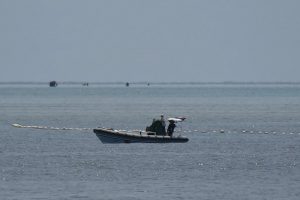Oyo, a hospitality services platform, filed an addendum to its previously submitted draft red herring prospectus to the Securities and Exchange Board of India (SEBI) on Monday.
Oyo released its fresh financial statements in an Initial Public Offering (IPO) filing with the statistics showing thinner losses and a turnaround in sales for the fiscal year to March 2022 and the next three months.
Also Read| Week ahead: US Fed interest rate decision to weigh on Sensex, Nifty
Through March 2022, the company’s losses almost halved to Rs 18.9 billion. The figures were recalculated from previously undisclosed numbers and published in an addendum to the IPO document.
The company’s adjusted gross profit margin increased from 9.7% in fiscal 2020 to 33.2% in fiscal 2021, while its EBITDA losses decreased by about 79% from fiscal 2020 to 2021.
Also Read| Week in review: Inflation fears, weak global cues drag Sensex, Nifty lower
EBITDA narrowed further and turned positive for the first time in the current fiscal year. Meanwhile, Oyo’s operating revenue increased 21% to 4,781.4 crore in the fiscal year 2022 from 3,961.6 crore in the fiscal year 2021.
Oyo submitted its draft red herring prospectus (DRHP) for its IPO in October of last year. According to the DRHP, the company’s planned issue included a fresh issue of equity shares worth up to Rs 7,000 crore and a Rs 1,430 crore offer for sale.
Also Read| Adani Group is India’s second-largest cement maker after Ambuja, ACC buyout
The company stated that the funds from the public offerings will be used to prepay or repay in part certain borrowings obtained by its subsidiaries, to support organic and inorganic growth efforts, and for general corporate reasons.
Also Read| Where to invest during high inflation?
Ritesh Agarwal founded Oyo in 2012. According to Bloomberg, the business is now aiming for an initial share offering in early 2023 if India’s stock market holds up and economic circumstances improve, and the startup is now concentrating on four major regions: India, Malaysia, Indonesia, and Europe, where it operates vacation properties, and has reduced operations in countries it once considered important, such as the United States and China, where its staff now stands in single digits.






